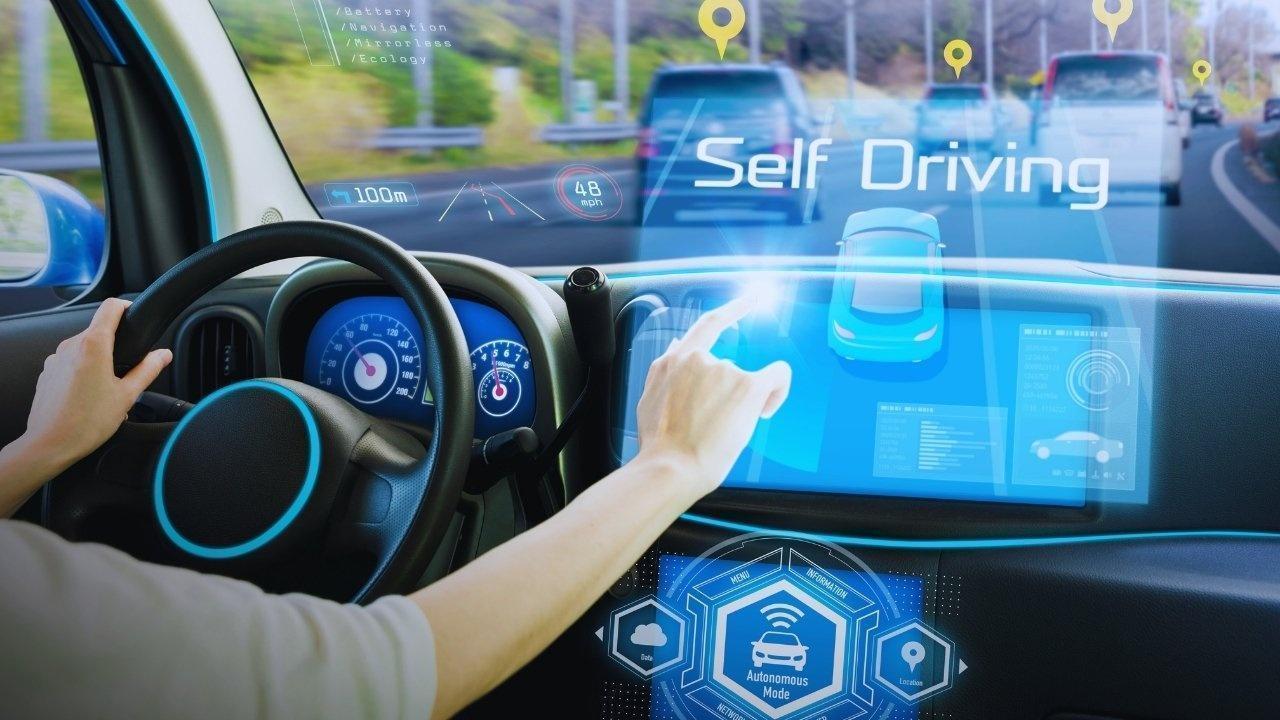You have not yet added any article to your bookmarks!

Join 10k+ people to get notified about new posts, news and tips.
Do not worry we don't spam!

Post by : Anis Farhan
The landscape of autonomous vehicle (AV) technology is rapidly evolving. This week witnessed a surge in test deployments, inter-regional partnerships, and regulatory changes, demonstrating the industry's shift from concept to practical applications. Key news includes:
A major mobility firm revealed the launch of shared Level-4 autonomous shuttles in various U.S. cities, signifying a leap in public-road testing within mixed traffic scenarios.
A global tech company initiated a specialized mobility division in Japan, aiming for Level-4 services to be rolled out in various locations throughout this fiscal year.
A partnership formed between Middle-Eastern and South Korean firms to expedite AV systems deployment in the United Arab Emirates, showcasing international collaboration in autonomy.
These developments highlight that AVs are transitioning from mere technology demonstrations to operational systems supported by necessary infrastructure and regulations.
A significant initiative this week includes the deployment of shared autonomous shuttles in Florida (Altamonte Springs) and Georgia (Atlanta). These vehicles harness Level-4 autonomous driving technology integrated with sophisticated sensors, operating along designated routes amid public traffic. This transition signifies a departure from isolated test zones to real-world scenarios.
In Japan, a significant tech company has launched a subsidiary dedicated to autonomous mobility, aiming to establish Level-4 services in multiple locales by the fiscal year's end. This includes demonstrations, infrastructure development, road testing, and aligning with new traffic regulations, enhancing Japan's role as a leading testing ground.
A crucial development involves a joint venture between a South Korean AV company and a Middle-Eastern mobility provider, focused on enhancing AV systems in the UAE. This signifies a trend towards globalization in AV testing, combining regional technology with practical deployment and adapting regulatory frameworks accordingly. The UAE is emerging as a pivotal hub for AV testing aligned with smart-city initiatives.
These advancements illustrate a crucial shift from controlled testing to practical deployment in mixed traffic scenarios. As shuttles maneuver in public spaces, companies are demonstrating technological maturity. This evolution is vital for unlocking commercial potential and gaining regulatory and infrastructural support.
In regions like the U.S., Japan, and the Middle East, regulatory landscapes are adapting to accommodate AV technologies. For instance, Japan is now allowing Level-4 driving under certain conditions. Simultaneously, infrastructure developments (like mapping, 5G/V2X, and sensor networks) are being established, aligning the ecosystem with vehicle technology.
Testing across varied regions (U.S., Japan, UAE) signifies a departure from favorable testing conditions to encompass diverse challenges, including mixed traffic and changing weather conditions. This broadens the path toward scaling technology credibly.
Many testing initiatives involve shuttle services, shared mobility, or urban routes, indicating that autonomous vehicles are likely to engage with public transport systems, shifting the mobility landscape beyond traditional ride-hailing or luxury vehicles.
In the U.S., companies are integrating AV services into both urban and suburban contexts, testing them under real public conditions, with plans for gradual scaling. The regulatory framework remains diverse (varying by state and city), yet these developments are fostering trust and accumulating crucial data for future commercialization.
Japan provides a unique scenario characterized by denser cities and strong governmental support. Testing Level-4 services here offers insights applicable to broader Asian markets, including India and Southeast Asia, potentially informing their mobility futures.
This region holds a unique appeal for AV testing due to smart-city strategies, favorable regulations, and relatively stable environmental conditions, despite some challenges. The collaborations illustrate a convergence of global technological supply chains.
While testing progression is notable, handling unpredictable events remains a challenge for AVs. The behavior of mixed road-users (pedestrians, cyclists, etc.) adds complexity, highlighting the necessity of real-world testing across various geographies.
For successful deployments, it’s critical that both regulators and the public perceive operations as safe and transparent. Past incidents (like unexpected vehicle reactions or sensor failures) still raise concerns. Strong safety protocols, audits, and transparency mechanisms must be maintained.
High-definition maps, V2X communication, and sensor redundancy are key to operational success at scale—presenting both cost and logistical challenges, especially in developing economies where infrastructure may lag.
Initial deployments are often costly. For AVs to be widely adopted, the costs associated with each vehicle and operational mile must decrease, and these technologies need to seamlessly integrate with existing mobility systems.
Currently successful testing environments in places like the U.S. or Japan could face entirely different challenges in cities with chaotic traffic, like New Delhi or Jakarta—illustrating the hurdles to scale in diverse global markets.
Broader Deployment Announcements: Expect more cities to be recognized as new sites for autonomous mobility services.
Regulatory Approvals: New frameworks or licenses for commercial AV operations will signal progress.
Public Shuttle Models: Expect to see shared AV shuttles increased in urban transport networks.
Cross-Border Technology Transfers: Partnerships across regions and nations are likely to expand.
Data Transparency: As operations scale, companies will need to share safety and performance metrics to build trust.
Growth in Indian AV Testing: Countries like India will increasingly host more AV tests or pilot zones amid urban expansion.
This week’s advancements in AV technology provide numerous angles for coverage:
Feature story: What city or region is leading and what factors made this week's deployments possible?
Technical analysis: What level of autonomy do various services employ and what infrastructure supports these initiatives?
Regulatory perspectives: How are regulations adapting to accommodate emerging technologies?
Regional focus: For Asia-Pacific readers, what implications do the AV tests in Japan or UAE have for India's mobility future?
Community impact: How do local populations perceive sharing roads with driverless vehicles?
Business models: Which firms stand to gain the most? How will these initiatives challenge existing transport models?
Through a blend of global narratives and localized significance, you can craft stories that resonate with readers across DXB News Network and Newsible Asia.
This week signifies a pivotal moment in the autonomous vehicle narrative. From the launch of U.S. shuttles into shared public operations to Japan’s expanding Level-4 services and the collaborative efforts in the Middle East, autonomous testing is visibly progressing. Yet, the journey from controlled environments to widespread acceptance is complex, with variables including safety, regulations, infrastructure, costs, and public acceptance shaping the landscape. Clearly, the era of silence in labs is yielding to extraordinary experiments on public roads worldwide—making it essential for mobility advocates, policymakers, analysts, and regular citizens to take heed.










Study Warns Using AI for Medical Advice Is ‘Dangerous’ as Users Get Inaccurate Health Guidance
A major new study reveals that artificial intelligence (AI) chatbots and tools may give misleading o

Top Sci-Fi Movies Streaming on Netflix This February: Must-Watch Picks for Genre Fans
A curated news-style guide to the best science fiction films currently available on Netflix in Febru

BCCI Central Contracts Shake-Up: Kohli, Rohit Moved to Grade B as Board Reshapes 2025–26 List
Virat Kohli and Rohit Sharma have been placed in Grade B in the BCCI’s 2025–26 central contract list

Dalal Street Spotlight: Top 10 Stocks Investors Are Watching as Markets Open on a High
Indian stock markets begin the week with strong momentum, and several blue-chip and mid-cap stocks a

Market Movers Today: Key Stocks Set To Watch In Indian Markets
Indian equity markets are poised for active trading as several major companies, including Bharti Air

Milan Welcomes the World: Inside the Grand Opening Ceremony of the 2026 Winter Olympics
The 2026 Winter Olympics opening ceremony in Milan marked a defining moment for global sport, blendi